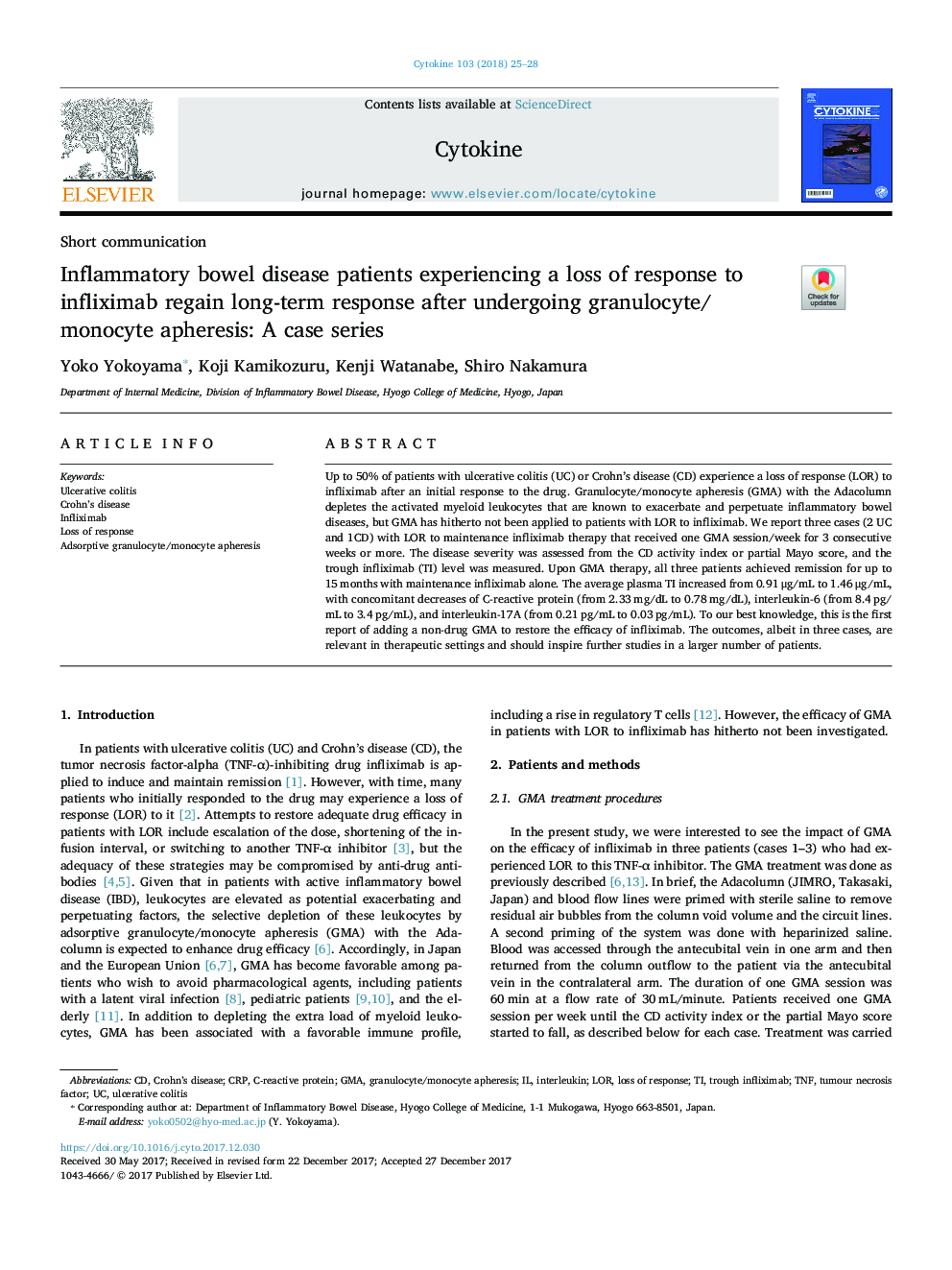| کد مقاله | کد نشریه | سال انتشار | مقاله انگلیسی | نسخه تمام متن |
|---|---|---|---|---|
| 8629247 | 1568709 | 2018 | 4 صفحه PDF | دانلود رایگان |
عنوان انگلیسی مقاله ISI
Inflammatory bowel disease patients experiencing a loss of response to infliximab regain long-term response after undergoing granulocyte/monocyte apheresis: A case series
ترجمه فارسی عنوان
بیماران مبتلا به بیماری التهابی روده ای که در اثر واکنش طولانی مدت در معرض آنزیم گرانولوسیت / مونوسیت واکنش نشان می دهند، واکنش نشان می دهند: یک سری موارد
دانلود مقاله + سفارش ترجمه
دانلود مقاله ISI انگلیسی
رایگان برای ایرانیان
کلمات کلیدی
موضوعات مرتبط
علوم زیستی و بیوفناوری
بیوشیمی، ژنتیک و زیست شناسی مولکولی
علوم غدد
چکیده انگلیسی
Up to 50% of patients with ulcerative colitis (UC) or Crohn's disease (CD) experience a loss of response (LOR) to infliximab after an initial response to the drug. Granulocyte/monocyte apheresis (GMA) with the Adacolumn depletes the activated myeloid leukocytes that are known to exacerbate and perpetuate inflammatory bowel diseases, but GMA has hitherto not been applied to patients with LOR to infliximab. We report three cases (2 UC and 1CD) with LOR to maintenance infliximab therapy that received one GMA session/week for 3 consecutive weeks or more. The disease severity was assessed from the CD activity index or partial Mayo score, and the trough infliximab (TI) level was measured. Upon GMA therapy, all three patients achieved remission for up to 15â¯months with maintenance infliximab alone. The average plasma TI increased from 0.91â¯Î¼g/mL to 1.46â¯Î¼g/mL, with concomitant decreases of C-reactive protein (from 2.33â¯mg/dL to 0.78â¯mg/dL), interleukin-6 (from 8.4â¯pg/mL to 3.4â¯pg/mL), and interleukin-17A (from 0.21â¯pg/mL to 0.03â¯pg/mL). To our best knowledge, this is the first report of adding a non-drug GMA to restore the efficacy of infliximab. The outcomes, albeit in three cases, are relevant in therapeutic settings and should inspire further studies in a larger number of patients.
ناشر
Database: Elsevier - ScienceDirect (ساینس دایرکت)
Journal: Cytokine - Volume 103, March 2018, Pages 25-28
Journal: Cytokine - Volume 103, March 2018, Pages 25-28
نویسندگان
Yoko Yokoyama, Koji Kamikozuru, Kenji Watanabe, Shiro Nakamura,
